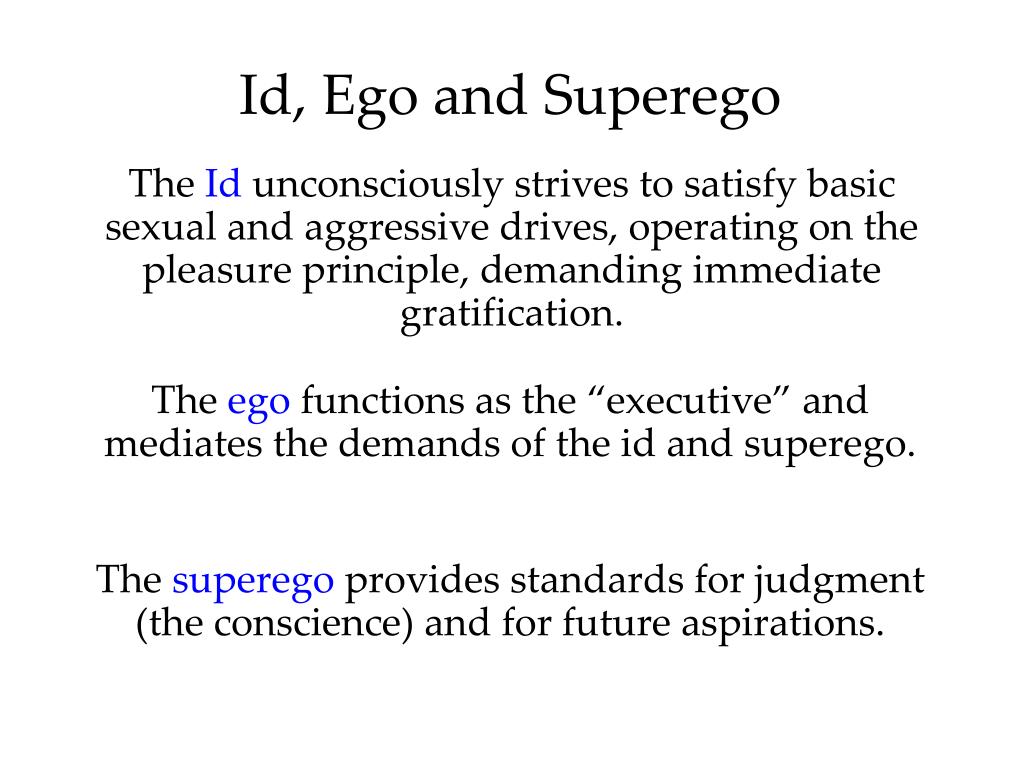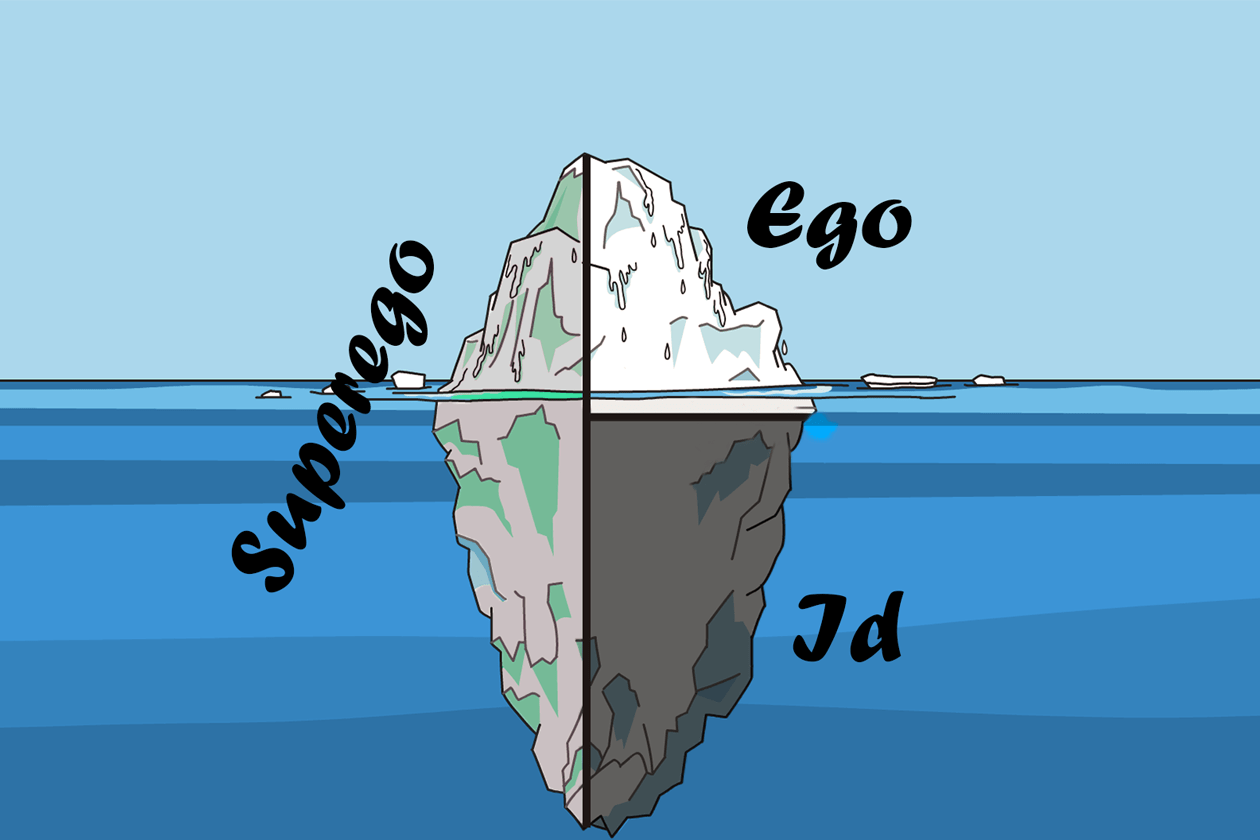

Making unacceptable motivations appear as their exact opposite Generating self-justifying explanations for our negative behaviorsĪ drama student convinces herself that getting the part in the play wasn’t that important after all. Table 11.4 The Major Freudian Defense Mechanismsĭiverting threatening impulses away from the source of the anxiety and toward a more acceptable sourceĪ student who is angry at her professor for a low grade lashes out at her roommate, who is a safer target of her anger.ĭisguising threatening impulses by attributing them to othersĪ man with powerful unconscious sexual desires for women claims that women use him as a sex object.

We may wish to scream, yell, or hit, and yet our ego normally tells us to wait, reflect, and choose a more appropriate response. The id and the constraints of society contained in the superego ( Figure 11.6). The ego serves as the intermediary between the desires of The ego is the larg e ly c ons c i o us c ontroll e r orĭ ec ision - mak e r of p e rso n alit y.

R e ality prin c ipl e-the idea that we must delay gratification of our basic motivations until the appropriate time with theĪppropriate outlet. In contrast to the id, which is about the pleasure principle, the function of the e gois based on the The superego strives for perfection, and when we fa il to live up to its demands we feel guilty. The superego tell us all the things that we shouldn’tĭo, or the duties and obligations of society. In stark contrast to the id, the superego represents our s e nse of morality and oughts. The id is why we smokeĬigarettes, drink alcohol, view pornography, tell mean jokes about people, and engage in other fun or harmful behaviors, often at the cost of doing more productive activities. Pl e asu r e prin c iple-the desire for immediate gratification of our sexual and aggressive urges. According to Freud, the id is driven by the The id is entirely unconscious, and itĭrives our most important motivations, including the sexual drive ( libido) and the aggressive or destructive drive ( Thanatos). 1 According to Freudian theory, the id is the c ompon e nt of personality thatįorms the basis of our most pr i miti v e impuls e s. Available under Creative Commons-NonCommercial-ShareAlike 4.0 International License.įreud proposed that the mind is divided into three components: id, e go, and sup e r e go, and that the interactions andĬonflicts among the components create personality (Freud, 1923/1943).


 0 kommentar(er)
0 kommentar(er)
